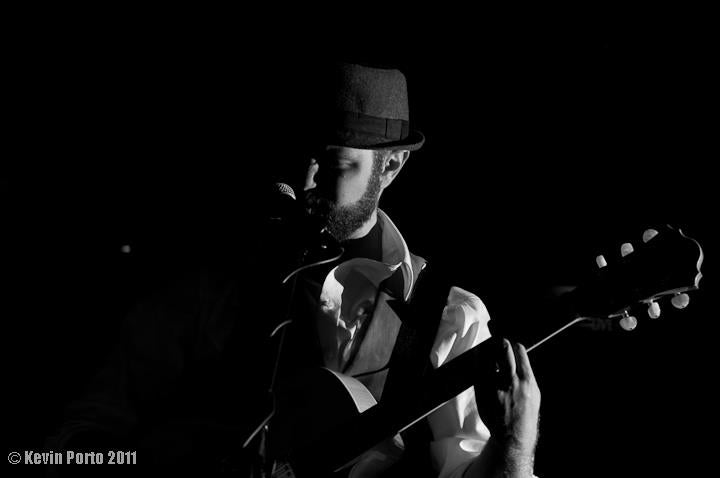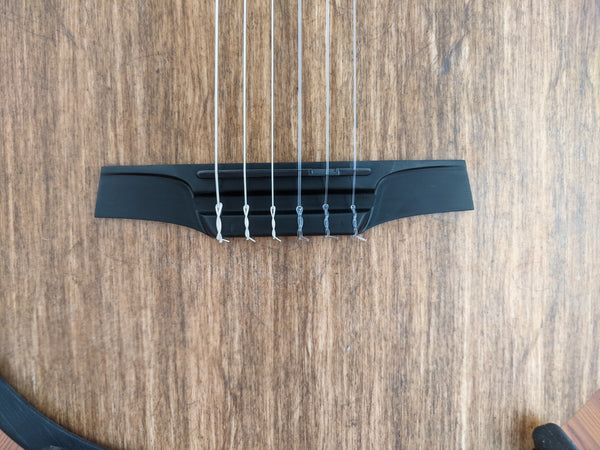I'm no Jimi Hendrix, Stevie Ray Vaughn, or even Meatloaf for that matter, but I've played just shy of 1000 gigs professionally (ie. for money), and thought I'd share a few things that I've picked up along the way. I also book the live music stage at a successful electronic music festival and can speak from the booking side of things as well.
1. Clip on tuners are what's up. For years I kept a BOSS tuner pedal on my board, which took up space, demanded power, and couldn't be seen in the daylight. I'm not sure why this changed or when, but I started noticing players with clip-on tuners, such as the Snark, and I picked one up and will never go back. It's nice having the tuner right there on the headstock and the transducer enables you to tune without having to turn your volume up, which is very important if you'd like to be taken seriously.
2. If you get booked for a festival/reoccurring event/any gig really, the best way to get invited back is to make the promoter/manager/booking agent's job as easy as possible. Imagine you are an event planner (or club owner, whatever). You have many different responsibilities and stress inducing factors, not including high-maintenance musicians. Being on time, predicting the needs of whomever hired you, and maintaining a good attitude will go a long way in getting booked by these folks again.
3. As a band leader, I would rather hire someone that is easy and fun to work with and is a decent player, than someone who is an incredible player and is a pain in the ass. This is so important, and ties in with the last one. If you're an asshole, there is no amount of talent or skill that will make it easier to ride in a van with you for 10 hours.
4. Playing gigs for free is bad for you, me, and the industry. It's bad for men, women, non-binary folks, children, tweens, adults, and animals. Don't do it. Many people still play music for a living, as crazy and romantic as it seems. Playing gigs for free ruins the economic landscape for those that have dedicated their lives to their craft. It devalues what we do and creates the impression that musicians will work without compensation. Even negotiating $40 or $50/a person creates a gesture that says that music and musicians are valued and worth compensating.
5. Promote, Promote, Promote. This is tough. You have already created a band, come up with the perfect band name, wrote music, rehearsed it to perfection, and booked some gigs that you'd like to populate full of screaming, adoring, fans. If you don't promote your gigs, this will be all for naught. It is the last step of producing an album or booking a gig, is one of the most important, and one of the most often overlooked.
6. Diversify your repertoire. Part of the reason I think my band has been (relatively) successful is that we are able to play a loud, rowdy bar one night, then an Easter Brunch at a fancy restaurant the next morning, then a wedding ceremony/reception the next night, and an outdoor festival later in the week. If you only play hardcore metal, you will miss out on gigs. NOW, I'm not suggesting you compromise your artistic vision, and if you play hardcore, play the shit out of it. However, if you want to be a working musician, maybe start another project that you can book in case people don't want to hear hardcore while they're eating crab legs.
7. Don't quit your dayjob. No, seriously. We have this idea in our society that doing what you love is the end-all, be-all goal. Know this: when you start relying on that thing you love as your sole source of income, you might love it less. As your passion turns into a day to day grind, it will change the way you look at practicing, rehearsals, and performing. You will need to take gigs that you may not enjoy simply to pay the bills. In my own life, after performing full time for 10 years, I found that I enjoy music SO much more when I can be selective about which gigs I take. Having a part time job has provided my life with structure and income that solely playing music did not provide. This will be different for everyone, but I would encourage you not to think that once you are able to play music full-time things will be skyrocket and be perfect, because they may not.
8. While it is helpful to see what other bands/acts are doing, don't get caught up in others' success. We all have different paths to success. People only post positive things to their social media pages to project the image that they are successful, valued, and in demand. You or I will never know what challenges they are going through or what struggles they have overcome to get where they are. Comparing your own accomplishments can create feelings of bitterness or inadequacy. Ignore the haters and success stories. Focus on your craft.
9. Always get paid the night of the gig (or before). It is always advisable to use a contract and get a 50% deposit prior to the start of the event. Be sure to collect the remainder of the payment the day of the event. If not, you may have to hound their accounting department to get the check that could have already been cut for you. You have already performed your services, so the motivation to get the money to you may be lacking. You probably have enough on your plate with writing, practicing, rehearsing, booking, and performing - getting paid for that gig three weeks ago is the last thing you should be worrying about.
10. Finally, if you're not having fun, do something else. Playing music for a living (or even for a hobby) is tough. Oftentimes it's not particularly lucrative and it can be a lot of work. If you're not having a good time, you might seriously ask yourself what is the point? Life is short and there are many other things you could be doing, right? When I see people that look miserable on stage, I often wonder why they don't be miserable somewhere else where they can actually put some money in their pockets.
I hope you have found some of this helpful. Please feel free to share, add a few of your own pointers, or comment below.
Tyler Ryan Miller is an Oakland, CA based guitarist and bassist for Modern Speakeasy band Tumbledown House and instrumental jazz madmen John Brothers Piano Company. He is in charge of Marketing and Social Media at Blackbird Guitars and enjoys dance parties and dumplings.
2 Responses
Christian Wolf
As a presenter, I LOVE #2! It is so true! As is #3. I will book people who are great to work with again and again, but if they are a pain in the ass, they are one and done. Sometimes performers forget, it’s not all about them. It’s about the audience who is paying their hard earned money to come see you.
All 10 are actually great advice. Nice work Tyler.
Leave a comment
Comments will be approved before showing up.



Patricia A Skoda
February 17, 2020
Excellent advice. I particularly like Number 4. I don’t understand why artists are not more “valued” in our society. Even the ants enjoyed the grasshopper (of course, then they ate him)